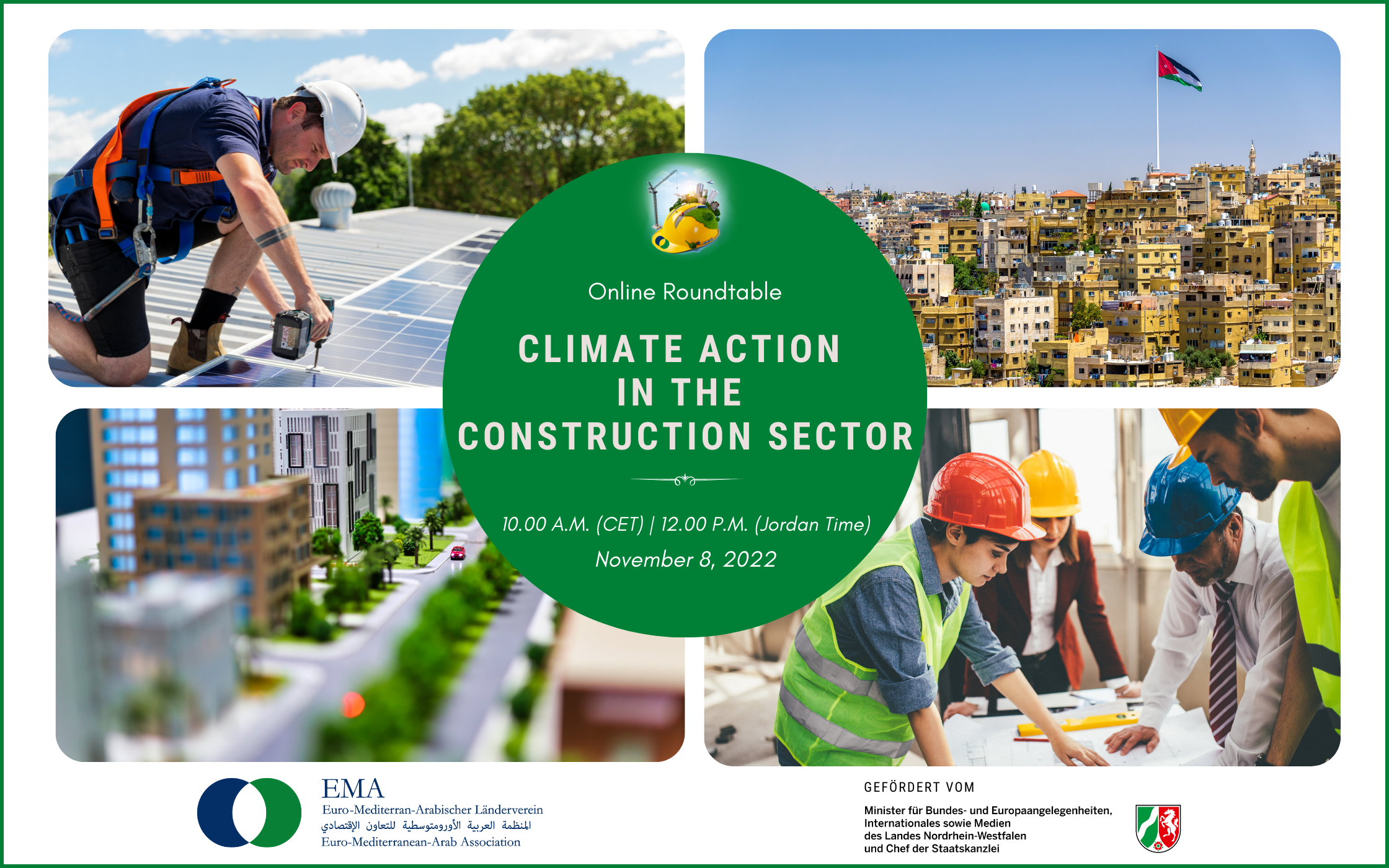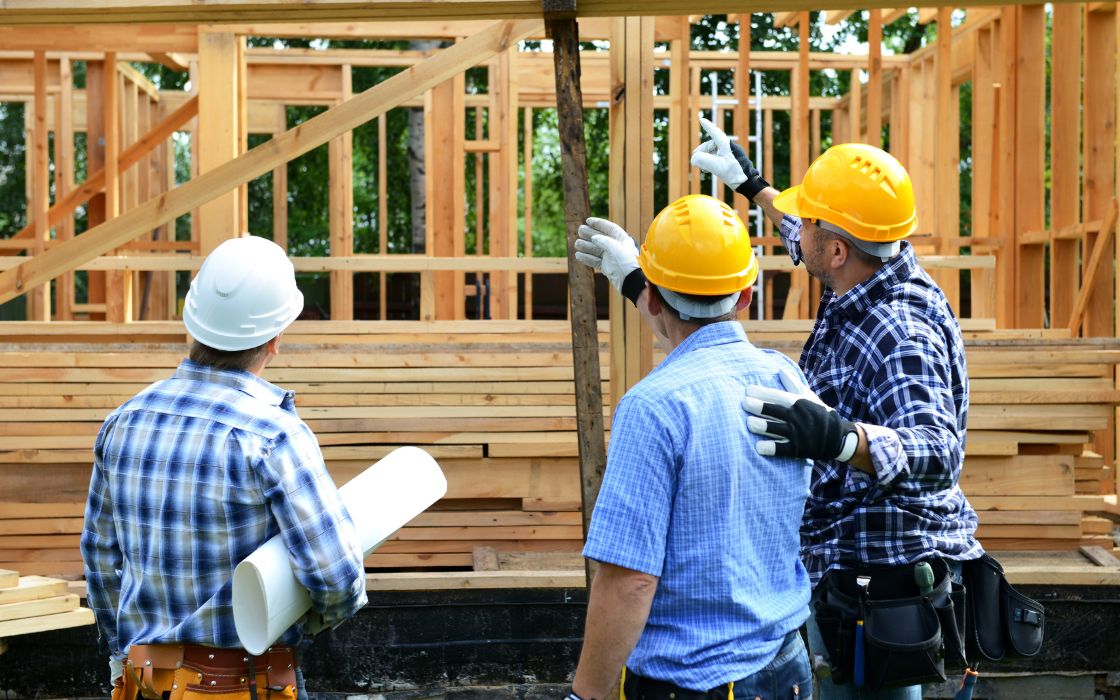
The construction sector is of fundamental importance to Germany and Jordan, where demand for housing and infrastructure has grown steadily in parallel with the sector’s reduction of climate-damaging emissions. This is where the Roundtable comes in and creates a platform for interested players in the construction industry: This Jordanian-German, especially North Rhine-Westphalian, exchange of know-how, experience and expertise on sustainable construction regarding resources, materials, green building, digitalization, education and training and 3D printing will enrich all participants.
Online Roundtable
Climate Action in the Construction Sector
Opportunities for German-Jordanian Cooperation in Architecture and Urban Planning
Zoom | November 8, 2022 | 10 A.M. (CET) / 12 P.M. (Jordan Time)

Made in North Rhine-Westphalia: Both countries – and in Germany especially the State of North Rhine-Westphalia – are hosts to solutions in the construction industry: Energetic renovations of existing buildings and the use of renewable raw materials such as wood instead of concrete, reusable resources in building construction, and 3D printing break the ground for a sustainable future. In addition, the further development of existing job descriptions in the construction industry responding to the needs of digitization and climate change should be incorporated into technical and vocational education and training (TVET).
Qualifying and training young people – especially in the field of sustainable construction and green infrastructure – is a promising approach. It is worth to pursue updating existing curricula in an effort to respond to the challenges of our time. North Rhine-Westphalia has also a lot to offer in this regard as it counts among the leading locations for planning and construction
Target Group: The roundtable targets architects and urban planners, sustainability experts, as well as small and medium-sized construction companies. In addition, it will be relevant to municipalities, local administrators, community workers, as well as trainers in local training facilities. Finally, it addresses business and expert associations, chambers of industry and commerce, and chambers of crafts.
Why should you attend as well?
Participants will benefit from networking with peers in the construction sector and insights into the progressive areas of sustainability in the construction industry:
- Scarce resources and building materials
- Reduction of CO2 emissions
- Sustainability as part of curricula in education and training
- Green Building Sustainable transformation of urban landscapes

